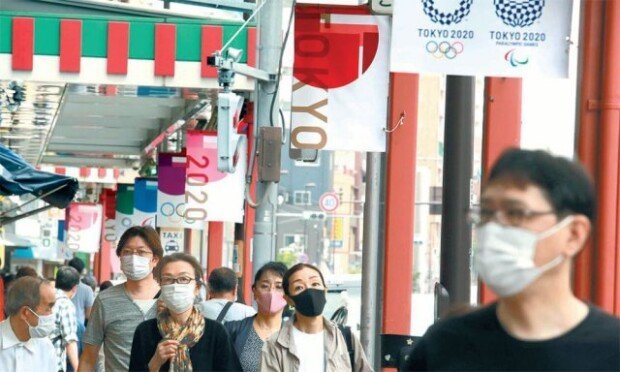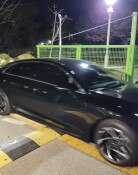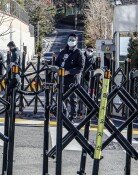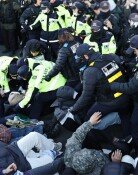No spectators possible for Tokyo Olympics amid rising COVID-19 cases
No spectators possible for Tokyo Olympics amid rising COVID-19 cases
Posted July. 01, 2021 07:27,
Updated July. 01, 2021 07:27

The possibility of no-spectator games for the Tokyo Olympics has been raised once again amid rising COVID-19 cases in Tokyo in recent weeks. The torch relay for the Olympics has been limping along, taking the flame off road for COVID-19 fears. Against this backdrop, there is a growing dissatisfaction among the Japanese people towards the International Olympic Committee (IOC), whose only interest is “carrying on with the Olympics.”
The Mainichi Shimbun daily reported on Wednesday that the Japanese government was considering extending its COVID-19 prevention measures in Tokyo, which are set to be lifted on July 11, by two to four weeks. If extended, the period would overlap with the Tokyo Olympics set to open on July 23. The current quasi-state of emergency for Tokyo is one step lower than the state of emergency, which allows the head of local government to enforce measures, such as shorter business hours for restaurants or ban on selling alcoholic beverages aimed at reducing the movement of people. There is a growing voice within the government that the Olympic Games should be held without spectators if the period overlaps with the Olympics, Mainichi reported.
Organizers for the Tokyo Olympics, including the Japanese government and the IOC, agreed on June 21 to allow up to 10,000 spectators at Olympic events, or 50 percent of venue capacity. The decision, however, was based on the assumption that the COVID-19 prevention measures for Tokyo would end on July 11 as scheduled. They agreed to consider other options, including holding the Games without spectators, if the number of new COVID-19 cases increase in Tokyo, leading to an issuance of state of emergency or quasi-state of emergency.
According to Mainichi, Japanese Prime Minister Yoshihide Suga wants a maximum of 5,000 spectators for Olympic events like domestic sports events even if the COVID-19 prevention measures are extended into Olympics period. The adjustment of the spectator cap is expected to be difficult as the Ministry of Health, Labor, and Welfare is strongly urging the government to hold the Olympics without spectators.
The Tokyo metropolitan government announced on Tuesday that it will take torch relay off public roads from July 7 to July 16 (except for island regions), out of fears that COVID-19 cases could surge if spectators flock to see the Olympic torch events. For Olympic torch events in Tokyo scheduled from July 17 to July 23, the city government said they will make a decision after monitoring the COVID-19 situation in the city.
Japan is spending about 1.6 trillion yen (approx. 16.3 trillion won) for the Tokyo Olympics. The total budget climbs to about 3 trillion yen when other expenses, such as measures against heat and security cost are added. Japan is also responsible for the 90 billion yen in ticket revenue that would be lost if the Games are played without spectators. The IOC is obliged to pay a certain amount of fee set by Host City Contract and does not pay additional fees. The IOC will not suffer much damage as long as the Olympics are held and Japan will have to bear all the burden, reported Asahi, adding the country is not in a festive mood for the Olympics as there is a growing dissatisfaction among people.
lovesong@donga.com







